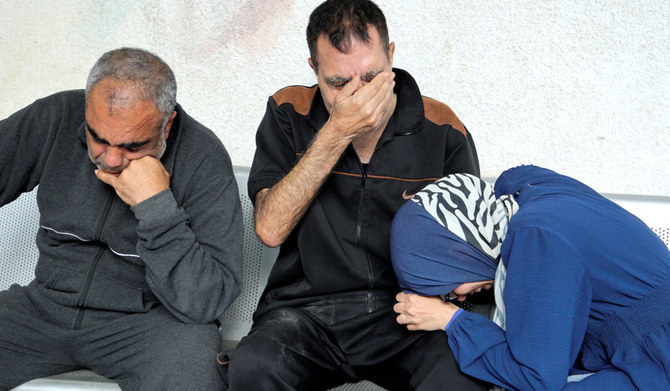DUBAI: Mohamed Ali Al-Madfai is all steamed up about a new market opportunity. The Emirati entrepreneur hopes his line of specialty roasted coffees could soon be perking up Chinese customers.
“Chinese people seem to have similar coffee preferences when compared to ours and we want to elevate and enrich their coffee experience,” said Al-Madfai.
“We have observed that millennials now prefer coffee over tea and want a new experience. This has paved the way for new opportunities, and we see a gap that we can address.”
Founded in 2018, Emirati Coffee Company (ECC) sources its beans from over 40 countries, and then roasts and markets them to over 250 cafes across the region. The line of products includes conventional and organic beans, instant coffee and coffee capsules to both consumers and enterprise customers.

Founded in 2018, Emirati Coffee Company (ECC) sources its beans from over 40 countries, and then roasts and markets them to over 250 cafes across the region. (Supplied)
In Saudi Arabia and Bahrain, ECC retails under the brand names of Knowhere and High Street. The company saw growth of 300 percent during the peak months of the coronavirus pandemic, Al-Madfai says, thanks in part to a new website launched in March.
He has now set his sights on China, where annual coffee consumption has expanded by 16 percent each year on average over the past decade and will be worth $42.3 billion this year, according to the International Coffee Organization.
“We are still in discussions with our Chinese counterparts, as we are keen to expand into China with the same business model that we have here. We believe our current approach will work well in the Chinese market,” he said.
Al-Madfai and other entrepreneurs are finding ways to reach Chinese consumers with the help of Hala China. The two-year-old Dubai initiative helps regional entities build business and cultural relations with their counterparts in the world’s second-largest economy.
This summer, Hala China organized an innovative virtual trade expo between the UAE and China. Among its highlights, exhibitors could access a free 3D-light technology platform to offer audiences and buyers a 360-degree view of their products.
FASTFACT
China
* 1.3bn - Population of China.
* 61.4% - Population living in cities.
* $25.36 trillion - GDP (purchasing power parity) in 2018.
Majid Al-Mualla, chairman of the board of directors at Hala China, says Chinese consumers are drawn to Middle Eastern cultural hallmarks such as spices — saffron in particular — carpets, abayas and pedigreed Arabian horses.
“The demand goes beyond these products. As a market we are still streamlining our efforts to focus, to educate and increase awareness in the ‘Arabian’ offerings,” Al-Mualla said. “We are still learning how to adapt and customize our products to fit the Chinese consumer.”
Although commonly perceived as an exporter, China remains a key market for brands from all over the world. The country was the world’s second largest importer of goods in 2018, with a total value that year of $1.6 trillion. Recent trade disruptions notwithstanding, the country remains a top importer.
“With the post-COVID-19 landscape offering an even greater surge in e-commerce. Initiatives in the field of e-commerce, modern agriculture, automobile, cross border e-commerce, air cargo, are some of the key focus areas,” Al-Mualla said.

Emerging markets in the Middle East are drawing the attention of Chinese venture capitalists and angel investors. (Supplied)
He emphasizes the importance of a long-term plan for entrepreneurs hoping to reach Chinese customers.
“The focus should be on understanding the nuances of Chinese culture and its role in business — as people usually view international markets predominantly as the ‘western market.’ What may have proved effective in other markets may not be viable in China, because they require products tailored to their needs and requirements,” he said.
On the other hand, emerging markets in the Middle East are drawing the attention of Chinese venture capitalists and angel investors. With total internet penetration surpassing 60 percent in the Middle East, representing more than 150 million users, there is a growing interest in e-commerce, entertainment, leisure, technology, logistics and fintech.
“Chinese companies and individuals have been increasingly turning to investment in Middle Eastern markets over the past two years, with the New Silk Road projects firmly in mind. We have seen a growing interest in infrastructure and property investments in the region,” Al-Mualla said. The COVID-19 pandemic has only accelerated that outward focus.
“With this in mind it is important to work proactively in areas that are expected to see a rush.”
------------------
This report is being published by Arab News as a partner of the Middle East Exchange, which was launched by the Mohammed bin Rashid Al Maktoum Global Initiatives to reflect the vision of the UAE prime minister and ruler of Dubai to explore the possibility of changing the status of the Arab region.

























